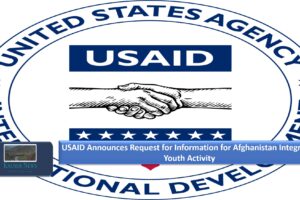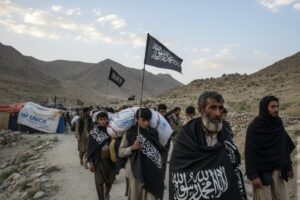The Tehrik-e Taliban Pakistan (TTP) is a group of Islamist militants that has been waging a bloody insurgency against the Pakistani state for over a decade. Since its formation in 2007, the TTP has carried out numerous attacks on civilian and military targets, killing thousands of people and causing widespread fear and insecurity. The group’s ultimate goal is to establish an Islamic emirate in Pakistan, governed by sharia law and hostile to Western values and influences.
The TTP is a loose coalition of several militant groups, united by their opposition to the Pakistani government and military, which they see as corrupt, secular, and aligned with the United States. The TTP also has close links to the Afghan Taliban and Al-Qaeda, with which it shares ideological and operational ties. The TTP’s leadership is based in the tribal areas of Pakistan, along the border with Afghanistan, where it enjoys support from sympathetic tribes and clans.
The recent takeover of Afghanistan by the Taliban has given a boost to the TTP’s morale and ambitions. Many TTP fighters have crossed the border to join their Afghan counterparts, while others have intensified their attacks on Pakistani targets, especially in the Khyber Pakhtunkhwa and Balochistan provinces. The TTP has also claimed responsibility for some of the worst terrorist attacks in recent years, such as the 2014 massacre of 132 schoolchildren in Peshawar, which shocked the nation and triggered a military crackdown on the group.
Despite Pakistan’s efforts to contain and defeat the TTP, the group remains a potent threat to the stability and democracy of the country. The TTP’s attacks on civilian targets, including markets, mosques, and schools, have eroded public trust in the government’s ability to protect its citizens. The TTP’s attacks on military targets, including checkpoints, bases, and convoys, have strained the army’s resources and morale, as well as its relations with the civilian government. The TTP’s use of suicide bombers, improvised explosive devices, and other guerrilla tactics has made it a formidable enemy that is hard to eliminate.
The current leader of the TTP, Noor Wali Mehsud, has vowed to continue the group’s struggle against Pakistan until it achieves its objectives. Mehsud, who took over from his predecessor, Mullah Fazlullah, in 2018, has been more focused on building alliances with other militant groups and expanding the TTP’s reach beyond the tribal areas. Mehsud has also tried to present the TTP as a defender of Pashtun rights and identity, appealing to the grievances of the ethnic group that dominates the tribal areas and has often felt marginalized by the Pakistani state.
The TTP’s future is uncertain, as it faces internal and external challenges. Some TTP factions have split from the group over ideological and strategic differences, while others have been eliminated or weakened by Pakistani security forces. The TTP’s relations with the Afghan Taliban, which has promised not to allow any group to use Afghan soil for attacks on other countries, may also be strained by the TTP’s continued operations in Pakistan. Nevertheless, the TTP remains a formidable force that poses a serious threat to the peace and security of Pakistan and the wider region.




